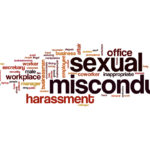Category Archives: Sexual Harassment

Sexual Harassment Victim Claims Constructive Discharge Where Employer Told Him To Deal With It Or Quit
Title VII of the Civil Rights Act of 1964 (Title VII), which is federal law, protects employees from sexual and racial harassment in the workplace which is sufficiently severe or pervasive to create a hostile work environment. When an employee endures hostile work environment harassment, the employee’s abusive work environment sometimes gives rise to… Read More »

Federal Court Rules That A Reasonable Jury Could Find That State Court Judge Subjected Employee To Sexual Harassment
A common myth associated with sexual harassment is that individuals who engage in sexual harassment in the workplace are almost exclusively low-level hourly employees. In perpetuating this self-serving myth, companies endeavor to portray themselves as helpless victims of behavior by employees they are unable to control. Having represented sexual harassment victims for more than… Read More »

When A Sexual Harassment Victim Makes A Complaint Employers Must Take Remedial Action
In Fuller v. City of Oakland, Cal., 47 F.3d 1522 (9th Cir. 1995), the U.S. Ninth Circuit Court of Appeals explained that “[o]nce an employer knows or should know of [sexual] harassment, a remedial obligation kicks in” and “[t]hat obligation will not be discharged until action—prompt, effective action—has been taken.” The remedial action taken… Read More »

Are Employers Automatically Liable When A Supervisor Punishes An Employee For Rejecting Sexual Advances?
Traditionally, courts have recognized that sexual harassment in violation of Title VII of the Civil Rights Act of 1964 (Title VII) comes in two forms: quid pro quo sexual harassment and hostile work environment sexual harassment. As observed by the U.S. First Circuit Court of Appeals in Chamberlain v. 101 Realty, Inc.,915 F.2d 777,… Read More »

Court Finds Employer Can Be Held Liable For Sexual Harassment When Harassment Continues After Victim’s Complaint
As explained by the U.S. Second Circuit Court of Appeals in Petrosino v. Bell Atlantic, 385 F.3d 210 (2d Cir. 2004), employers are not “automatically liable” for sexual harassment by employees. Rather, in the context of harassment by non-supervisory employees, an employer’s liability requires a showing that the employer knew or should have known… Read More »

What Should A Sexual Harassment Victim Do When The Company Finds That Her Complaint Has No Merit?
Sexual harassment victims are often required by an employer’s policy against sexual harassment to lodge a sexual harassment complaint with a designated employee or employees, including the company’s human resources department. Generally, employers respond to the victim’s sexual harassment complaint by conducting an investigation into the allegations. After investigating the complaint, employers will generally… Read More »

Are Sexual Harassment Victims Protected From Retaliation When They Tell The Harasser To Stop The Behavior?
Under Title VII of the Civil Rights Act of 1964 (Title VII), employers are prohibited from retaliating against employees who oppose discriminatory conduct in the workplace. As explained by the U.S. Eleventh Circuit Court of Appeals in Gupta v. Florida Bd. of Regents, 212 F.3d 571, 582 (11th Cir. 2000), “[s]exual harassment is a… Read More »

An Employer’s Sexual Harassment Policy Must Be Effective In Preventing Sexual Harassment In The Workplace
Employers customarily defend themselves against sexual harassment lawsuits by claiming that they should not be held liable for the sexually harassing behavior because they had sexual harassment policy in place. This defense is derived, in relevant part, from the decisions by the U.S. Supreme Court in Faragher v. City of Boca Raton, 524 U.S…. Read More »

EEOC Sues Farm over Sexual Harassment of Worker
The management and owners of a farm in the Hillsborough County town of Dover have recently become the subject of a federal lawsuit based on workplace sexual harassment. The suit, filed in federal court in Tampa, claims that a female worker was forced to suffer escalating sexual harassment and was ultimately fired for her… Read More »

Whether A Sexual Harasser’s Touching Was Accidental Is For Jury To Decide
In sexual harassment cases, employers frequently defend against the allegations by claiming that the harasser was “joking” with the victim or the touching of the victim was “accidental.” In claiming that the verbal conduct of a sexual nature was a “joke” and physical conduct of a sexual nature was “accidental,” employers are attempting to… Read More »


 Close Menu
Close Menu